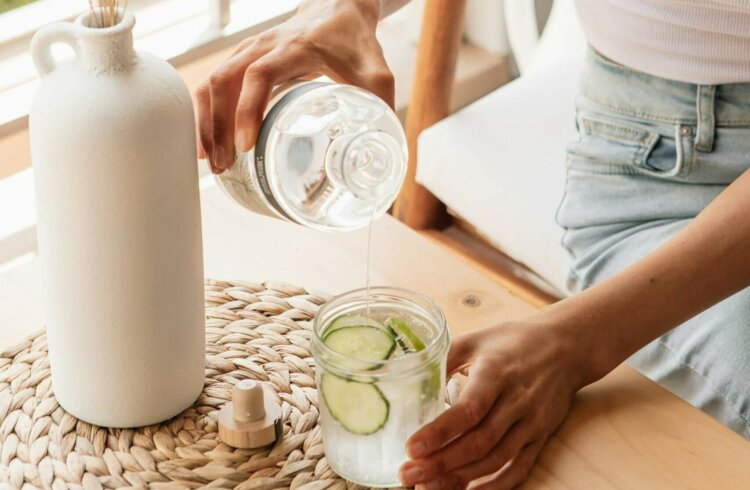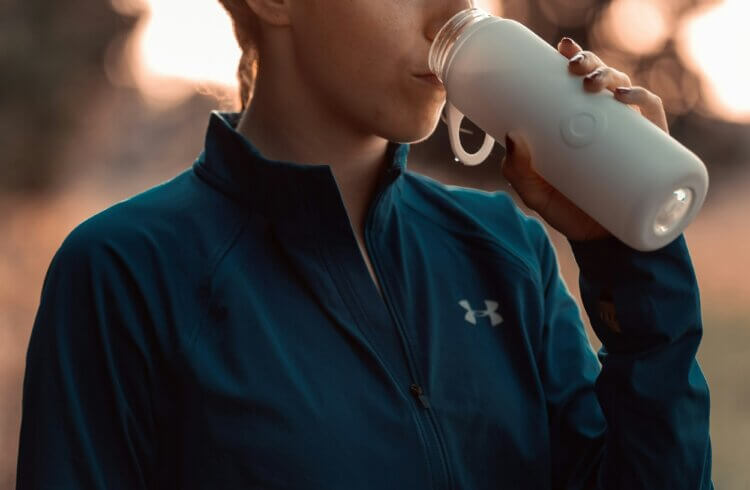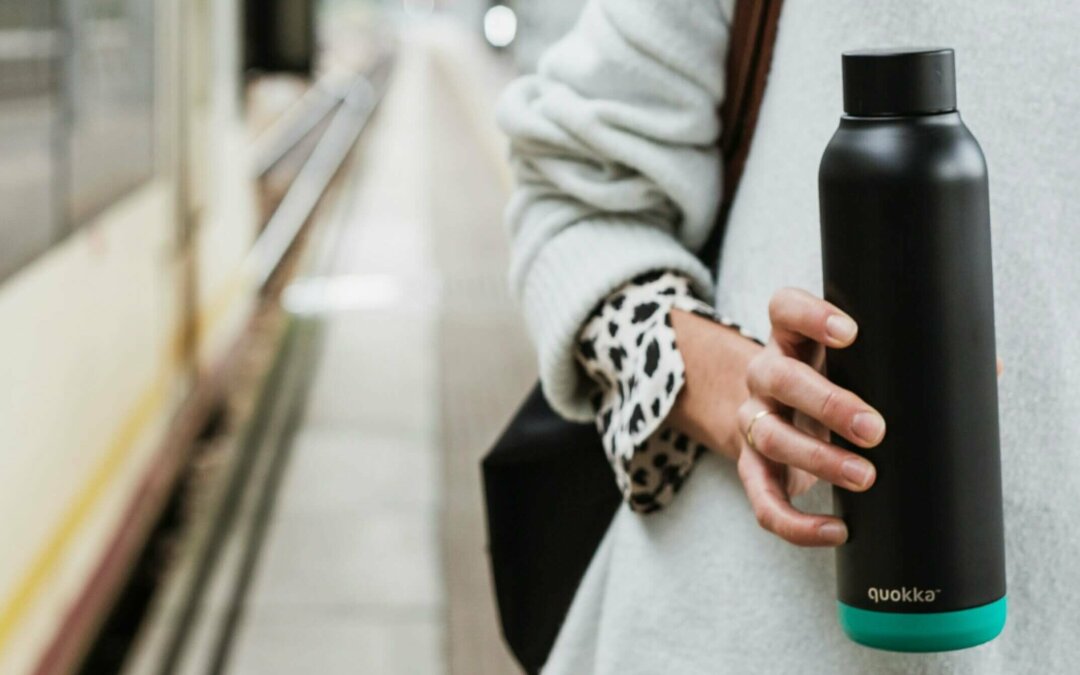You’ve just woken up. Maybe you’re already starting with your skincare routine, or perhaps you’re enjoying your breakfast. You brush your teeth, choose your outfit, and head to work. You’re so focused on your everyday routine that you haven’t stopped to drink water. I know, it happens to the best; because for us “But first, coffee” is like our Mantra, right? We also know that staying hydrated throughout the winter is harder than ever, and that’s why today we’ll explore simple yet effective ways to boost your body’s hydration levels and reap the benefits of optimal hydration.
Why Hydration is Important?
- Hydration regulates body temperature and helps maintain the optimal functioning of organs and tissues.
- It also aids in digestion and nutrient absorption, promoting a healthy digestive system.
- Staying hydrated lubricates joints and cushions organs, helping to prevent injuries and discomfort.
- Also, it supports kidney function by flushing out waste products and toxins from the body.
- To boost cognitive function and enhance mood. It also helps you to stay focused and alert throughout the day.
4 Ways to Increase Body Hydration
1. Drink Plenty of Water!
This is always a good reminder. Although the “8 glasses a day” guideline is an excellent place to start, each person’s demands for water differ depending on factors including age, weight, activity level, climate, and general health. A more individualized strategy is to pay attention to your body’s thirst signals and make an effort to stay hydrated all day. Keep a reusable water bottle handy, and consider using hydration-tracking apps or setting reminders to stay on top of your water intake goals.
2. Consume Hydrating Foods and Beverages:
In addition to drinking water, you can boost your hydration levels by incorporating hydrating foods and beverages into your diet. Fruits and vegetables with high water content, such as cucumbers, watermelon, strawberries, and leafy greens, not only provide essential vitamins and minerals but also contribute to your overall fluid intake. Herbal teas, coconut water, and homemade smoothies are refreshing alternatives to plain water and offer additional hydration benefits. Experiment with different combinations to find what works best for you and make hydration a delicious part of your daily routine.
3. Monitor Electrolyte Levels:
Electrolytes are minerals like sodium, potassium, calcium, and magnesium that are crucial in maintaining fluid balance, nerve function, and muscle contractions. While water is essential for hydration, electrolytes are equally important for proper hydration and overall health. Sweating during exercise or hot weather can deplete electrolyte levels, so it’s essential to replenish them through diet and hydration. Incorporate electrolyte-rich foods such as bananas, avocados, nuts, and seeds into your meals and snacks. Consider adding electrolyte-enhanced beverages or sports drinks during prolonged or intense physical activity to help maintain electrolyte balance and support hydration.
4. Limit Dehydrating Factors:
Several factors can contribute to dehydration and compromise your body’s hydration status. Excessive consumption of caffeine and alcohol, particularly diuretic beverages like coffee and alcoholic drinks, can increase urine output and lead to fluid loss. High-sodium diets, commonly found in processed and packaged foods, can disrupt fluid balance and contribute to dehydration. Certain medications, such as diuretics and antihistamines, can also increase the risk of dehydration by promoting fluid loss. To support optimal hydration, be mindful of these dehydrating factors and take steps to moderate your intake.

When Dehydration Begins to Occur
When our body loses more fluid than it takes in, it becomes dehydrated, which can have a negative impact on performance and general health. It’s critical to identify the early indicators of dehydration in order to stop its advancement and keep healthy levels of hydration. Mild to moderate dehydration can cause symptoms like increased thirst, dry mouth, dark urine, headaches, lethargy, and dizziness. If dehydration is not treated, it can get worse and cause more serious symptoms like dizziness, a racing heartbeat, sunken eyes, and even fainting. You can avoid potential health concerns linked to insufficient hydration by being aware of your body’s signals and taking quick action to correct dehydration.

Hydration Drinks
While water is the best choice for hydration, certain beverages can also contribute to your fluid intake and provide additional benefits. Herbal teas, infused water, coconut water, and homemade smoothies are excellent alternatives to plain water and can add variety to your hydration routine. Herbal teas, such as chamomile or peppermint, not only hydrate but also offer calming or digestive benefits. Infused water with fresh fruits, herbs, or cucumber slices adds flavor and encourages increased fluid intake.
There are also innovative alternatives available that offer both hydration and flavor without added sugars or artificial sweeteners. One such option is Hint water, a refreshing and hydrating beverage infused with natural fruit essences. With a wide range of delicious flavors like watermelon, blackberry, and pineapple, Hint water provides a refreshing burst of flavor without any added sugars or calories. Each bottle is made with purified water and a hint of natural fruit essence, making it a guilt-free option for staying hydrated throughout the day.
Hydration Can Reduce
- Cardiovascular Risks:
Promotes proper blood circulation.
Maintains healthy blood pressure levels.
- Digestive Issues:
Aids in digestion.
Facilitates nutrient absorption.
Helps prevent constipation.
- Kidney Problems:
Supports kidney function.
Flushes out waste products and toxins.
Reduces the risk of kidney stones and urinary tract infections.
- Cognitive Impairment:
Improves cognitive function.
Enhances mood and mental clarity.
Boosts energy levels and reduces fatigue.
Pro tip: Measure water in glasses. Start by having two for breakfast, two for lunch, two for tea, and two for dinner. Before you notice, you’ll be drinking much more water than you ever thought of 😉



